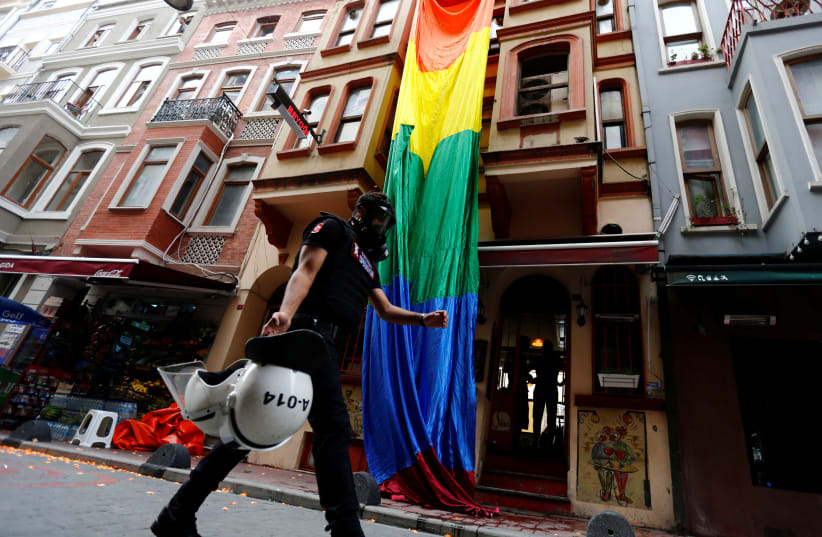Westerners shouldn't be writing the Arab LGBT+ "narrative," activists said on Friday, even while applauding Luxembourg's gay prime minister's confrontational remarks at a summit between European Union and Arab League leaders.
Xavier Bettel, speaking in a closed session, called out homophobia in the Arab world by telling the delegates that his marriage to a man could lead to his execution in some of the nations represented in Sharm el-Sheikh, Egypt, this week.
The remarks were greeted with "icy silence from some, quiet joy from others," according to a tweet by a German journalist who attended the meeting at Egypt's Red Sea resort.
LGBT+ relationships are illegal across most of the Middle East and North Africa, and gay people often risk fines, jail and even the possibility of death, according to the charity Human Rights Watch.
Tarek Zeidan, executive director of Lebanese LGBT+ rights group Helem, said it is positive that LGBT+ issues in the Arab world were being talked about at big event - but he does not believe a Westerner should be leading the conversation.
"It is a very gray area - my gut feeling is that if you are going to Egypt on a global stage and do not mention human rights abuses then you are complicit," he told the Thomson Reuters Foundation by phone.
"But, do I like the fact that we have to rely on a European politician to speak on our behalf … agency is important."
Zeidan said it is difficult to categorize Bettel's comments as "good or bad," but he did not believe the prime minister's remarks will cause "extra harm" for the LGBT+ community in Egypt and the Arab world.
"The idea that his remarks will make things worse for the LGBT community in the Arab world and for places like Egypt is ludicrous, because things are incredibly bad already," he said.
Zeidan previously said that while LGBTQ activists are inspired by some things currently possible in the West, the Western model is not the only one for LGBTQ people all around the world and should not be seen as the only possible history. "In my country, the police raid that inspired the birth of queer organizing and the creation of Helem, the Arab World’s first LGBTQ rights organization, occurred in a totally different country – after the raid on the Queen Boat in Cairo, Egypt in 2001," he said in an interview with the site Gay Star News.
Decolonize your own success ️ https://t.co/tB69ew9qzM thanks @gaystarnews
— Tarek Zeidan (@tarekzeidan) January 18, 2019
"The first time a rainbow flag was raised on Arab soil was not in a pride parade," he went on to say, "but in a massive public march against the US invasion of Iraq in Beirut in 2003."
In Egypt, homosexuality is not explicitly criminalized, but LGBT+ people have long been targeted under laws on "debauchery."
Noor, an Egyptian LGBT+ activist who declined to use her real name for safety reasons, was happy that Bettel took the opportunity to confront Arab leaders at an event in the global spotlight.
"It is a good step to show these leaders that LGBT identity and sexual orientation - it's part of the daily life of any person, so it's not something isolated," she said.
A gay Qatari man, who declined to be named for reasons of safety, said the Arab leaders should be held liable for their treatment of LGBT+ people, but Westerners, and Western leaders should not be "driving the narrative."
"They shouldn't be the ones trying to speak on our behalf. They should be the ones trying to assist us and reaching out, and trying to convey our suffering and our struggle and our hardship, and the fact this can't be tolerated," he said.
In comments made to reporters at the summit Bettel said he was there to listen and not to tell Arab states what do, but said sexual orientation is among the subjects that should be raised.
"To say nothing was not an option for me," Bettel wrote on Twitter after the summit, signing his message with his initials.
